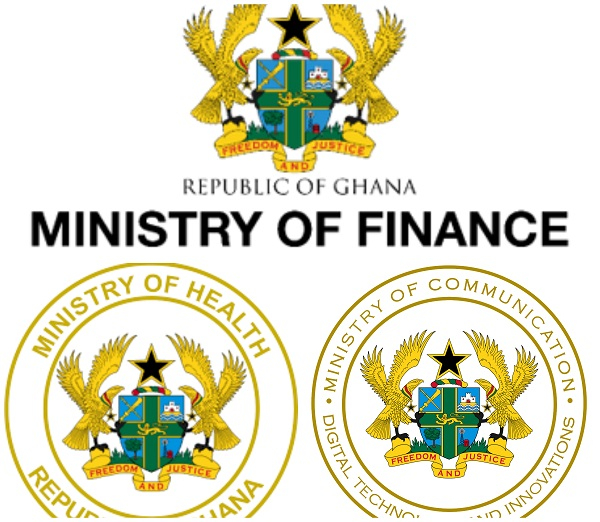GhanaWeb Feature by Ishmael Batoma
Financial irregularities by government agencies continue to be an albatross around the neck of Ghana.
Year after year, for more than a decade, audit reports covering both central and local government consistently expose infractions totalling billions of Ghana Cedis.
Auditor-General’s reports on the books of Ministries, Departments and Agencies (MDAs) from 2020 to 2024 have shown irregularities worth between GH¢1 billion and GH¢2.5 billion.
The infractions, according to the Office of the Auditor-General, “represent either losses that had been incurred by the State through impropriety or lack of probity in the actions. The decisions of public officers, or on the other hand, the savings that could have been made if public officials and institutions had duly observed the public financial management framework put in place to guide their conduct and also safeguard national assets and resources.”
The Auditor-General’s report categorises infractions found in the books of MDAs into the following broad categories: cash irregularities, indebtedness/loans/advances irregularities, payroll irregularities, stores/procurement irregularities, rent payment irregularities and contract irregularities.
Often, when the audit reports are published, the total amount of irregularities found—for example, a loss of about GH¢2.1 billion—are bandied around as the monies the state lost due to the corrupt activities of public officials. But is that really the case?
This article first looks at a breakdown of the 2024 Auditor-General’s Report in terms of the ministries that were the worst offenders and secondly the implications of these infractions.
The ministries with the most infractions:
As indicated earlier, the financial irregularities recorded by public agencies in 2024 amounted to over GH¢2 billion.
Out of the about 26 ministries and other agencies that were captured in the report, three ministries — including the Ministry of Finance, the Ministry of Health, and the Ministry of Communications and Digitalisation — accounted for more than 90% of the total value of the infractions recorded in 2024.
Ministry of Finance:
The Ministry of Finance alone was responsible for over 77% of the financial irregularities—about GH¢1.6 billion of the over GH¢2 billion infractions found.
Tax irregularities alone amounted to about 90% of the infractions in the books of the Ministry of Finance — over GH¢1.4 billion of the near GH¢1.6 billion infractions of the ministry.
Ministry of Health:
The Ministry of Health followed the Ministry of Finance in terms of the ministries with the most irregularities. It recorded over GH¢200,000 worth of infractions, representing about 10% of the total infractions recorded.
Nearly a third of the infractions — about GH¢90,000 — at the Health Ministry were related to either indebtedness, loans or advances, while about GH¢60,000 were cash irregularities, and over GH¢50,000 were other irregularities.
Ministry of Communications and Digitalisation:
The Ministry of Communications and Digitalisation was the third ministry with the most financial irregularities.
It recorded over GH¢100,000 worth of infractions. Almost all the infractions were cash irregularities.
The ministries that recorded the least infractions:
About 10 ministries out of the 26 deserve commendation for recording insignificant or zero financial irregularities.
The Ministry of Energy and the Ministry of Information recorded zero financial irregularities, while the Ministry of Transport, the Ministry of Defence, the Ministry of Environment, Science, Technology and Innovation, the Ministry of Gender, Children and Social Protection, and the Ministry of Works and Housing all recorded infractions worth less than GH¢100.
Implications of the infractions found in the Auditor-General’s report:
There is always outrage anytime the Auditor-General’s report is published, with many thinking that the entire figures quoted in the report are monies stolen from the State by corrupt officials who must be prosecuted. But is this the case?
A breakdown of the total value of the infractions recorded in the 2024 Audit Report may help one understand the implications of these irregularities, which may explain why public officials implicated in the Auditor-General’s report are not locked up as many in the public expect.
Out of the about GH¢2.1 billion infractions recorded in 2024, nearly GH¢1.6 billion — about 77% — were tax irregularities; taxes MDAs failed to collect. These irregularities are not recoverable and are due to inefficiencies in the collection of taxes.
The second biggest chunk of the monies the state loses to irregularities is essentially bad debts of the MDAs — debt/loans/advances irregularities — which amount to about GH¢190,000,000 — a little over 9% of the value of the total infractions.
The infractions, which perhaps point to issues of corruption — cash irregularities — were less than 9% of the total value of the infractions — about GH¢178,000. They include unapproved disbursements, unpresented payment vouchers, unaccounted revenue, unsupported payment vouchers, and unretired impress.
Payroll irregularities, which have to do with the issue of ghost names and unearned salaries, were less than 3% of the value of the total irregularities — about GH¢58,000.
BAI/VPO
Meet the two prominent female lawyers with decades of experience at the Bar
